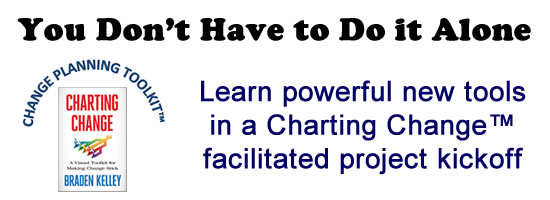Innovators, What is Your Strategy if the Market Crashes?

Obviously the stock market, and more importantly, the economy in general has a big impact on innovation.  But whether or not it makes sense from a long term vision, investment in innovation is often one of the first places to get hit when money gets tight.  We have all got somewhat used to a goldilocks stock market. It’s not all been plain sailing for innovators, as margin pressure and significant tech driven changes have created a somewhat more mixed bag for innovation investment. But in general, the economic world and investment in innovation has been pretty good for at least the last 10 years. But nothing lasts forever, and the noticeable drop in global markets recently was a sharp reminder for me at least that markets really do go down as well as up.
Do you have a post Goldilocks Plan? This current volatility may not portend immediate long-term issues with the broader economy. But it did remind me that it never hurts to do a little scenario planning, and at least revisit my plans and strategies for when the economy inevitably hits trouble. Are any of you doing the same?
Innovating in a tight fiscal environment: Individual stock price may or may not drive down innovation investment, although I can certainly recall instances from my corporate career where a stock drop shifted focus from long to short term, and narrowed focus quite considerably. But when a whole market goes down, we not only see an almost inevitable tightening of budgets, but also a shift in innovation strategy. In challenging economic times, consumers spend less, focus more on value, are more risk averse, and are far less likely to risk precious dollars on premium innovations. Corporate strategy tends to follow a similar pattern, in part because it needs to shift focus to meet current consumer needs, and partly because corporations are made up of humans who have similar short-term, risk averse biases as the consumers they sell to.
Corporate Innovators: Obviously, economic effects impact both corporate and independent innovators. For anyone working inside a company, I think it’s worth being aware of what projects and what personal skills are most recession resistant. Which have a potential fit with consumers who are searching for value, or can grab market share in a value orientated market? Are you familiar with concepts like ‘flight to the familiar’ and ‘loss aversion’ that tend to operate well in fear driven environments? How much of the existing portfolio could be reframed in a value context?
Oversight and Control: Another almost inevitable outcome of tighter budgets is increased oversight and control.  This can be a good thing up to a point. Being choiceful about where we invest time or money is a good thing. But all too often, it can also strangle innovation. Bringing big ideas to market usually involves taking a long view, taking some risk, and learning by failing. However, all too often, tightening budgets increase focus on accountability that plays out in more stage gate evaluations, less tolerance for even productive failure, and more aggressive timelines.  The result is almost always an increase in smaller, faster initiatives at the expense of big, slower burning, but potentially game changing ideas. This can impact long-term company growth, but also how much fun it is to be an innovator. Few of us working in innovation have completely escaped shaving the salami, and working ‘emergency’ cost saving projects, it comes with the territory. But when that becomes the job, rather than just a part of it, for me at least, innovation loses a lot of its appeal. It’s always worth thinking about how we might adapt our best and biggest ideas to protect them, or at least extract value if the economic world changes. And cultivate networks, allies and believers who may help protect innovations with huge potential but longer time horizons in the face of economic adversity.
Independent Innovators: If like me, you work as an independent consultant, the challenge can be even more immediate.  When budgets get cut, external support is often the first casualty. I think it is well worth at least thinking about how to reframe skills to align with companies seeking growth in tighter, more risk averse innovation markets. And perhaps consider how existing innovation services could be converted into value options with appeal to companies with shrinking innovation budgets. Also consider offerings that focus on delivering growth and share in more psychologically negative consumer environments, where familiarity, habits, value, and loss aversion come to the fore, and risk tolerance goes down.
The Sky Isn’t Falling, Yet. I personally don’t believe the sky is falling, and that we need to panic. Overall the economy looks OK. But we probably face a period of increased volatility, which can of itself tighten budgets, simply because of the uncertainty it brings. I’m also not advocating spending a lot of time on dystopian scenarios, but for me, this last week has been a reminder that we have been in an unusually comfortable economic period, and I for one, have not thought about how I might react to change as much as I probably should have. It never hurts to do a little bit of scenario planning.
Wait! Before you go…
Choose how you want the latest innovation content delivered to you:
- Daily — RSS Feed — Email — Twitter — Facebook — Linkedin Today
- Weekly — Email Newsletter — Free Magazine — Linkedin Group
 A twenty-five year Procter & Gamble veteran, Pete Foley has spent the last 8+ years applying insights from psychology and behavioral science to innovation, product design, and brand communication. He spent 17 years as a serial innovator, creating novel products, perfume delivery systems, cleaning technologies, devices and many other consumer-centric innovations, resulting in well over 100 granted or published patents. Follow him @foley_pete
A twenty-five year Procter & Gamble veteran, Pete Foley has spent the last 8+ years applying insights from psychology and behavioral science to innovation, product design, and brand communication. He spent 17 years as a serial innovator, creating novel products, perfume delivery systems, cleaning technologies, devices and many other consumer-centric innovations, resulting in well over 100 granted or published patents. Follow him @foley_pete
NEVER MISS ANOTHER NEWSLETTER!
LATEST BLOGS
Three things you didn’t know about credit cards
Photo by Ales Nesetril on Unsplash Many of us use credit cards regularly. From using them for everyday purchases to…
Read MoreFive CV skills of a business-minded individual
Photo by Scott Graham on Unsplash The skills listed on a CV help employers quickly understand your suitability for a…
Read More


